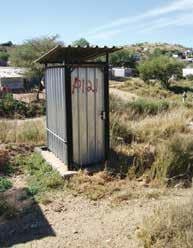United Nations (UN) Deputy Secretary-General Jan Eliasson is leading a call to action on sanitation.
Speaking at the General Assembly thematic debate on “Water, Sanitation and Sustainable Energy in the Post-2015 Development Agenda” in New York, Eliasson says communities, countries, the private sector, development banks, civil society and the UN need to work together to bring sanitation to the 2.5 billion people who lack the basic requirement. Eliasson says sanitation is one of the most lagging of the Millennium Development Goals targets. “Today, 1 billion still practise open defecation. Our goal is to end this practice by the year 2025. The countries where open defecation is practised are also those with the highest numbers of under-five child deaths, and with the highest levels of under-nutrition and poverty.” He says meeting the basic right to safe water and sanitation for all means that a hard look needs to be taken at how water resources are managed and used. The sustainable and equitable use of water resources requires innovative thinking, from the community level right up to transboundary agreements.“We must not let water become a source of conflict. Instead, we should see it as a driving force for cooperation and shared responsibility.”
Shocking facts on water and sanitation- not having access to clean water and sanitation kills children at a rate equivalent to a jumbo jet crashing every four hours. That means a child is dying from a water-related illness every 21 seconds
- lack of sanitation is the world’s leading cause of infection. Diarrhoea kills 1.5 million children a year – more than malaria, AIDS, and measles combined
- more people in the world have a mobile phone than a toilet
- a five-minute shower uses more water than the average person living in an informal settlement in a developing country uses in an entire day.







